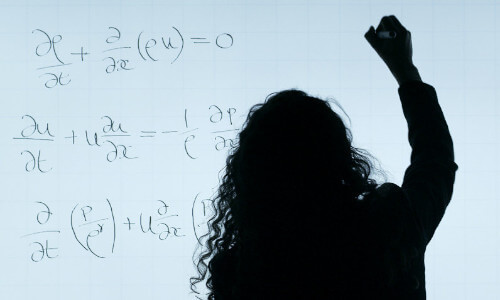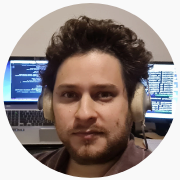Pure and Applied Mathematics FAQ
Let's address some frequently asked questios about pure and applied mathematics.

I have been an applied mathematician for more than a decade now. I’ve worked in an industrial R&D center, collaborated with NASA scientists and Engineers, and also did some “blue sky” research in areas I consider promising.
Here is my take on some of the most frequently asked questions about Pure and Applied Mathematics
Difference between Pure and Applied Mathematics
Applied mathematicians focus on solving problems arising in fields such as engineering, economics, physics, finance and biology. Pure mathematicians, on the other hand, focus on solving the problems encountered by other mathematicians.
What are the branches of applied mathematics?
Arguably, there are three large areas of applied mathematics: statistics, differential equations, and optimization. Those areas have a complex set of important sub-branches and combinations, including Fourier analysis, machine learning, optimal design, discrete mathematics, and many others.
Is calculus applied math?
Calculus is a fundamental component of both pure and applied math. Indeed, calculus was originally developed to solve both problems in physics (like expressing Newton’s laws and solving problems in mechanics) and in pure mathematics (to compute areas and finding tangent lines of arbitrary geometries).
Is pure math useful?
It is often said that the practical utility of pure mathematics should not be judged so much by its results, but for the methods and ideas that have to be developed in response to the profound questions put forth by pure mathematicians.
I believe this is fair and accurate. In my everyday work as an applied mathematician, I frequently need to rely on previous results, and some of those results spun from research in pure mathematics done during the last few decades.
What is pure mathematics used for?
Pure mathematics is used mostly in the following ways:
- To provide a foundation for the methods of applied mathematics and other math-heavy sciences such as physics or certain branches of engineering.
- The ideas of pure mathematics can have philosophical implications. For example, Godel’s incompleteness theorem is widely celebrated. Kenyes’ revolutionary economic theory was methodologically inspired in non-euclidean geometry: to develop his theory, he questioned one of the fundamental axioms of classical economic theory.
- Some ideas originating in pure mathematics can find an unexpected use in the development of new technologies. A celebrated examples is the use of number theory in cryptography and now, the blockchain.
Is a pure math degree useless?
While it is true that there is not much of a market for pure mathematics outside of academia, a pure math degree is far from being useless. Pure mathematicians are known as creative and persevering problem-solvers in hard quantitative or abstract areas, which is valued by companies in various fields.
Is applied math harder than pure math?
Applied math requires a slightly different set of abilities than pure math. While pure math is deductive and specialized, applied math requires that same capacity for deductive reasoning, but also a much broader knowledge of particular application areas of science and technology.
What jobs can I get with applied mathematics?
Applied mathematicians can work in finance, software development, government agencies, industrial R&D centers, in education, and other areas.
What is the highest paying job involving math?
The highest paying jobs involving math are usually in finance and/or software development. Reciently, jobs like actuary, data scientist, quantitative analyst, have been among the top-paying jobs involving math.
Further reading
If you or someone you know is thinking about a career in applied mathematics, the Society for Industrial and Applied Mathematics (SIAM) maintains a nice applied math careers page which contains a brochure with interviews, a long list of application areas and examples, and a lot more!
In particular, if you are curious about data science, you can also read my article What is Data Science All About?
